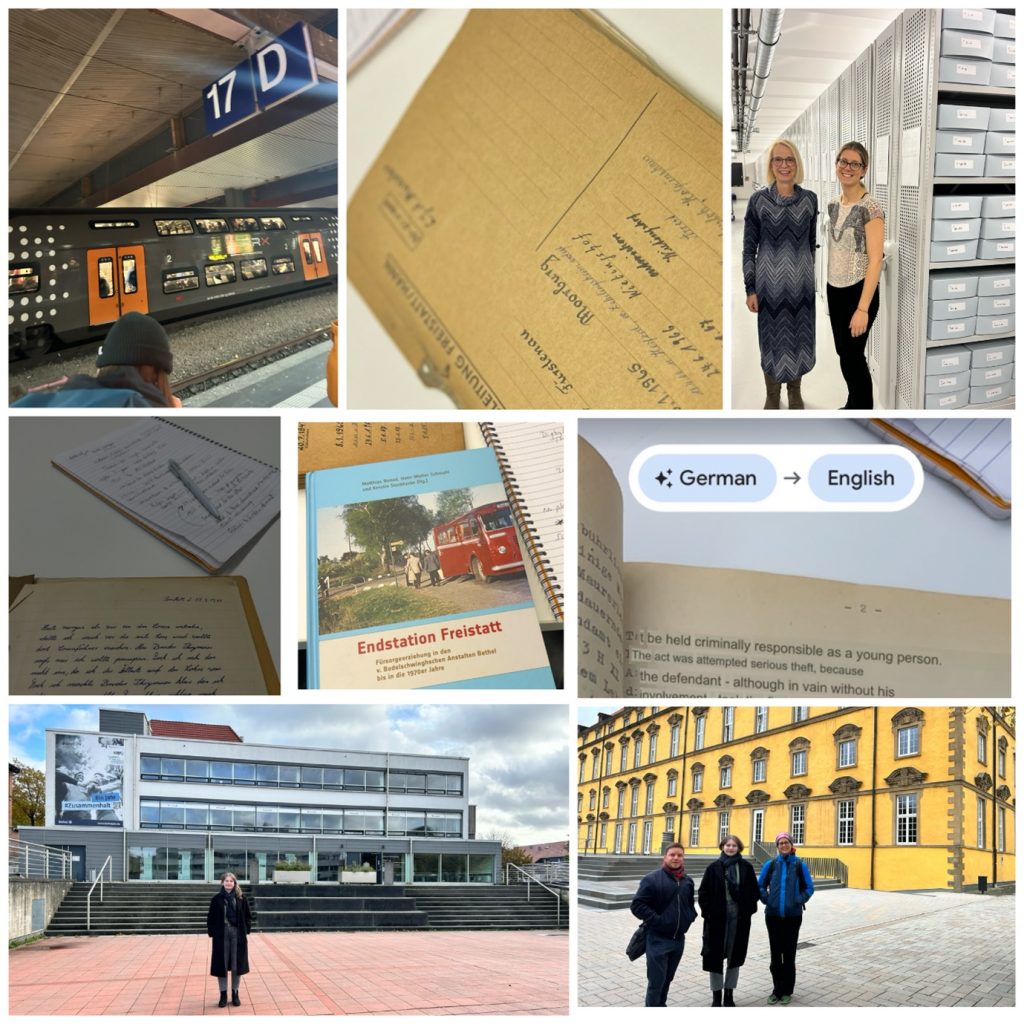
This blog gives an insight into Dr Siân Lucas (ARCH co-investigator) and Laura MacDonald’s (Social Worker, Birthlink Scotland) fieldtrip to Germany in November 2023.
Laura and I arrived at Frankfurt airport, just missing our train connection. Thankfully the conductor was lenient and we didn’t have to pay a fine. We arrived late in Osnabrück and had an early start, meeting Malte Heyen (ARCH technological genius) and Nina Flack (PhD student and ARCH research assistant) who showed us around the Osnabrück University. We had breakfast together and talked about the residential settings in German and Scottish and the interesting things that had emerged from the project as the living archive software has been developed. We said goodbye to Malte & Nina, hoping to see them both again at Stirling, at the ARCH launch event in June 2024. We then took a train to Bielefeld and then a taxi to the Bethal archive (v. Bodelschwinghsche Stiftungen Bethel) where we met Kerstin Stockhecke.
At the Bethel archive, we learnt about the site of the German residential setting that the German team focused on, Freistatt. Kerstin is an expert on the Friestatt archive and in 2009 co-authored a book about the institution ‘Endstation Friestatt’. We learnt about the history of the institution and about the law at the time and caregiving practices and punishment towards the young people in care. We talked about the 2015 film Friestatt and about the Aberlour archive and Birthlink’s approaches to recordkeeping and the redress support service.
We looked at a sample of records from Freistatt from 1940-1960, namely administrative documents, court reports, punishment logs and photographs, many of which were likely staged for publicity purposes. There were around 7000 young men in care at Friestatt. Between 2012-2018 there was a national inquiry Fonds Heimerziehung about institutional care, and in this period around 300 former residents of Friestatt requested their files. Since then there has been little interest in the archive. Kerstin was delighted that the ARCH project had on the institution of Friestatt. We learnt that there are no laws that required the organisation to keep the files and it was down to the discretion of the archive to retain the files. While we were very grateful for Kerstin’s fluent English, we were also grateful to use google translate app, so that we could read the content of the files.
It was a lot of train travel, including a journey on a double-decker train, a first for us & we were very grateful for the DB Navigator app which helped us to navigate the many train delays and diversions. It was great to have a couple of days with Laura from Birthlink and to talk about their recordkeeping processes and how they connect to the work ARCH is doing on creating a living archive. Laura was an MSc Social Work student at Stirling; her final placement was at Birthlink and since qualifying as a social worker, she had gone on to work for the agency. I was delighted to hear that Laura is planning to embark on a PhD about memory keeping, inspired by the work of the ARCH. It was also so useful to to talk in person with Malte and Nina about the ARCH project. The online meetings in this international project have been integral but in-person meetings can be so much richer and somehow allow for more deviations and discovery!